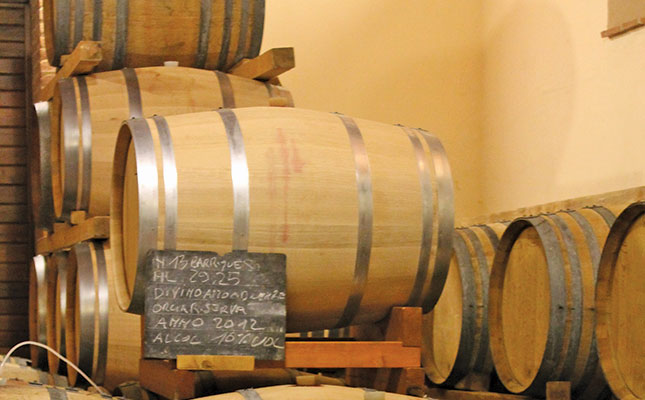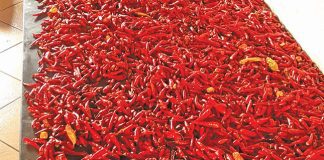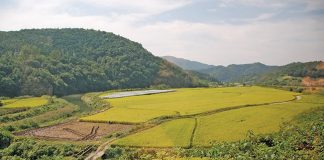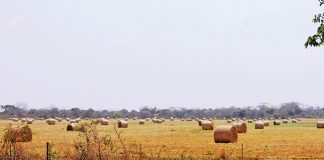
Photo: FW Archive
Recent years have seen a number of major changes in technology. Telephones, cameras, maps and even encyclopaedias have all been replaced by the smartphone.
Even taxi services have changed and can now be ordered via apps such as Uber. In a world where change is perpetual, it is naive to think that the wine industry will be exempt; in fact, it needs to get on board to avoid being left behind.
So says internationally regarded wine expert and winemaker Robert Joseph.
Location less important
According to Joseph, the lack of diversity in wine packaging makes it increasingly difficult to judge the price and quality of wine by its label. He cites the case of two wine bottles that look very similar in design but have a price difference of 10 000%.
He also questions the relevance of the appellation system, which identifies a particular wine according to the geographical location of the vineyards from which it originates.
He says producers are increasingly abandoning the system “because a lot of people are making wines that don’t conform to the rules”.
Many winemakers choose to source grapes from a variety of geographical locations in the quest to produce unique wines that offer interesting complexity.
Joseph uses the example of his own wine, which he used to sell as a Vin de Pays, a French term meaning ‘country wine.’
“I was advised to sell my wine as a Vin de France instead, which indicates that the wine could come from anywhere in France,” he explains.
“By changing the origin listed on the label to broadly state Vin de France, wine prices can go from €2 [about R32] up to €20 [R316] because nobody will ‘discriminate’ against the wine because it comes from a lesser known or revered location.”
He adds that Vin de France is the biggest-selling French wine brand in the US.
According to Joseph, the vast majority of wine drinkers don’t care about vintage, appellation and fermentation. They are more interested in colour, grape variety and brand.
“I’ll have a glass of red, a Merlot. I want white, but not a Sauvignon Blanc. This is how people buy wine, and we laugh at them because we are the experts.
“This really illustrates the big disconnect between consumers and those who have in-depth technical knowledge about wine.”
Education the solution
The solution is simple, says Joseph: educate consumers to gain a greater knowledge of wine.
Thanks to new technologies, it is becoming easier to achieve this. The Taobao app, for example, enables a user to upload a photograph of any wine label, read references to the wine online, and then buy the wine online. With this technology, there is no need to visit a liquor store or a traditional retailer.
Low on marketing
The wine market is extremely diverse and noisy, and a product can easily disappear in it, Joseph stresses. To prevent this, more attention should be focused on the marketing of wine.
According to him, JD.com, China’s leading e-commerce platform, offers customers 8 000 different wine products. In order for a brand to get noticed among this competition, at least 20% of ex-cellar price should be spent on marketing. However, this is rarely the case.
“This is what’s wrong with the wine industry. We fix our prices based on low margins, leaving no funds for marketing,” Joseph says.
He also questions the sustainability of the South African trend to sell a large quantity of the volume produced annually in bulk at low cost. Approximately 14% of South Africa’s bulk wine trades for less than R4,50/ℓ to wholesalers locally and R5,50/ℓ overseas.
Pointing out that it takes between 500ℓ and 1 500ℓ of water to produce one litre of wine, he says that producers who sell cheap wine overseas should ask themselves whether they are selling wine or water. They should also question whether they really have enough water to do so and how sustainable this practice is.
New products
According to Joseph, taste trends are also changing. In the US, for example, there are wines that are aged in bourbon barrels.
To him the idea seemed laughable at first, but the product has become very popular amongst US wine drinkers.
“Bourbon is huge in the US, therefore they love the bourbon taste in the wine. Consumers are paying for it and producers are making a good profit from it.”
A recent trend is the emergence of so-called synthetic wines that are produced from water and alcohol, with added replicated molecules of fermented wine.
According to Joseph, a US start-up company has already released a commercial synthetic whisky.
“Would consumers buy synthetic wine? Well, they already buy margarine and non-dairy cream, and if this is how to produce a cheap bottle of wine without using 500ℓ of water, then why not?”
Email Robert Joseph at [email protected], or visit thewinethinker.com.











